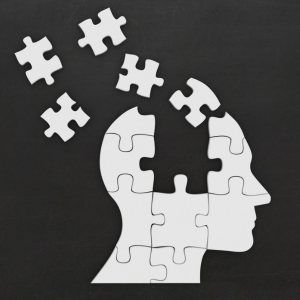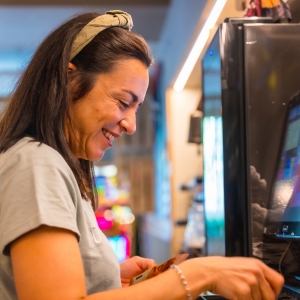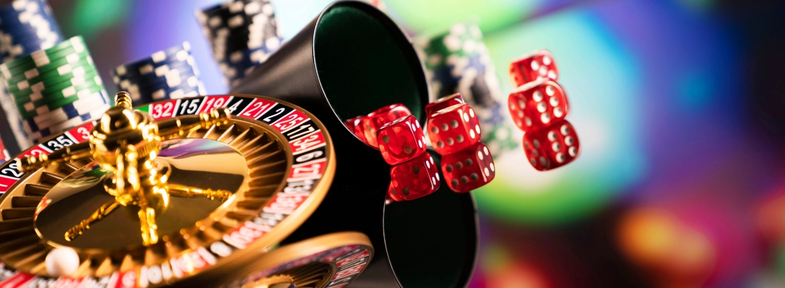Perangkap Ingatan yang Membuat Anda Terus Bermain
Judi dalam talian menghasilkan keterujaan sebahagiannya kerana otak menyimpan memori kemenangan besar. Namun, apa yang sering tidak disedari ialah minda akan “mengedit” memori itu — meletakkan kemenangan jackpot sebagai fokus utama sambil meminimumkan ingatan terhadap kerugian. Dengan mempromosikan naratif terpilih ini, otak memujuk pemain untuk kembali bermain walaupun baki keseluruhan adalah negatif.
Panduan ini meneliti bagaimana kasino dalam talian membentuk ingatan, mengapa kemenangan kelihatan lebih menonjol berbanding kekalahan, dan bagaimana penyelewengan ini mendorong permainan berisiko tinggi. Dengan mengenali perangkap psikologi ini, anda dapat menikmati permainan sambil mengekalkan kawalan dan pandangan yang jelas terhadap realiti.

Bias Ingatan Semula Jadi Otak
Ingatan manusia bukanlah seperti kabinet fail yang menyimpan segala sesuatu dengan teratur dan tepat seperti yang berlaku. Ia lebih menyerupai “highlight reel” yang sering memutarkan semula detik-detik yang menyentuh emosi kita. Kemenangan besar dalam perjudian dalam talian membangkitkan keterujaan yang kekal jelas dalam ingatan, manakala kerugian pahit pula perlahan-lahan memudar di latar belakang — seolah-olah kita tidak benar-benar merasainya.
Terdapat empat jenis bias ingatan yang sering membentuk cara pemikiran penjudi:
- Peraturan Puncak-Akhir – Kita paling mengingati detik kemuncak paling menggembirakan dan detik terakhir sesi permainan.
- Bias Kebaruan – Hasil terkini (contohnya tujuh putaran terakhir) lebih segar dalam fikiran, sekali gus memberi lebih berat kepada kemenangan yang baru berlaku.
- Pengukuhan Positif – Tangan atau putaran yang menang membanjiri otak dengan dopamin, mengunci memori gembira itu dengan kukuh.
- Rasionalisasi Kerugian – Kerugian dianggap sekadar “nasib malang” atau “kemunduran sementara,” bukannya tanda amaran sebenar.

Mengapa Anda Hanya Mengingati Kemenangan
Menang, walaupun kecil, memberikan lonjakan kegembiraan. Kemenangan kecil ini mencetuskan keterujaan, meningkatkan keyakinan, dan memberi ilusi bahawa usaha anda “berbaloi.” Sains menunjukkan bahawa otak kita menyimpan memori kemenangan dengan lebih jelas berbanding saat-saat kita gagal. Lama-kelamaan, ia terkumpul menjadi “highlight reel” peribadi yang sentiasa memainkan detik terbaik, manakala tempoh kekalahan yang panjang perlahan-lahan dilupakan di tepi ingatan.
Helah mental yang sering dialami penjudi:
- Anda mengingati jackpot RM3,000 dua bulan lalu tetapi melupakan kerugian RM5,000 sejak itu.
- Anda bercerita tentang kemenangan bertuah kepada rakan, tetapi jarang menyebut kekalahan kecil yang konsisten.
- Anda percaya masih “mendahului secara keseluruhan” walaupun baki sebenar menunjukkan sebaliknya.

Mekanisme Perlindungan Emosi
Otak kita secara semula jadi direka untuk melindungi harga diri tanpa kita sedar. Mengakui bahawa kita banyak kalah memang menyakitkan, jadi minda “menulis semula” cerita untuk menjadikannya lebih mudah diterima. Kita akan berpegang pada setiap kemenangan kecil dan menolak kekalahan sebagai sekadar nasib malang, urusan yang tidak menjadi, atau halangan sementara sebelum “kemenangan besar” yang akan datang.
Dengan cara melindungi ego sebegini, anda terus bertaruh sambil yakin bahawa nasib akan lebih memihak kepada anda berbanding kenyataan yang sebenar.

Bahaya Ingatan Terpilih dalam Judi Dalam Talian
Satu malam bertuah di kasino boleh membuatkan anda hilang pertimbangan. Apabila ini berlaku, ingatan mula memperdayakan anda, meninggalkan mitos berbahaya menggantikan realiti.
- Anda rasa anda jauh lebih hebat berjudi berbanding kemampuan sebenar.
- Anda tidak benar-benar menyedari berapa banyak wang yang sudah hilang.
- Apa yang anda anggap sebagai “rentak kemenangan” mendorong anda untuk bertaruh lebih besar.
- Anda sukar membezakan bila perjudian telah berubah daripada sekadar hiburan kepada sesuatu yang memudaratkan.
- Anda terus bermain dengan keyakinan bahawa anda “menang dalam jangka panjang,” sedangkan semua kerugian itu perlahan-lahan hilang dari ingatan.

Media Sosial Menguatkan Penyelewengan Ingatan
Penjudi sering memuat naik tangkapan skrin kemenangan besar mereka di media sosial. Perkongsian terbuka ini menguatkan lagi ingatan terpilih. Setiap tanda suka atau komen memberi pengesahan kepada ilusi kejayaan.
Kesan daripada perkongsian kemenangan di media sosial termasuk:
- Rasa tertekan untuk terus menang.
- Berjudi lebih kerap demi mencipta kemenangan baharu yang “layak dikongsi.”
- Mengabaikan kerugian yang tidak sesuai dengan imej awam.
Pengesahan sosial secara senyap memacu perjudian berasaskan ego dan mendalamkan lagi bias ingatan terpilih.

Bagaimana Kasino Dalam Talian Mengaut Untung daripada Ingatan Anda yang Tersasar
Platform perjudian dalam talian direka khas untuk memanfaatkan bias ingatan anda. Antara ciri yang digunakan termasuk:
- Kemenangan kecil yang kerap untuk mencetuskan lonjakan dopamin secara berterusan.
- Kesan bunyi dramatik dan lampu berkelip apabila mendapat kemenangan besar.
- Hampir menang yang memberi rasa seperti “nyaris menang” dan membuat anda mahu mencuba lagi.
- Akses mudah kepada sejarah kemenangan, tetapi sangat sedikit penekanan terhadap jumlah kerugian terkumpul.
Reka bentuk ini memberi makan kepada kecenderungan otak untuk lebih fokus kepada hasil positif, sekali gus mendorong anda untuk terus bermain.

Cara Mengatasi Perangkap Ingatan dan Kekal Mengawal
Cara Mengatasi Perangkap Ingatan dan Kekal Mengawal
- Simpan rekod perjudian peribadi yang terperinci – Catat setiap deposit, kemenangan, dan kerugian tanpa tertinggal.
- Tinjau rekod kewangan penuh secara berkala – Semak jumlah untung atau rugi sebenar supaya anda tidak terperangkap dalam ilusi “masih untung.”
- Hadkan tempoh sesi perjudian – Elakkan bermain terlalu lama sehingga emosi mengambil alih dan mendorong kepada pertaruhan melulu.
- Jangan kejar keterujaan kemenangan terdahulu – Elakkan mencari semula rasa “high” daripada kemenangan lampau.
- Kekal merendah diri – Fahami bahawa kemenangan adalah rawak, bukan bukti kemahiran mutlak.
- Gunakan peringatan realiti dan alat perjudian bertanggungjawab – Tetapkan pengingat masa atau had deposit bagi memastikan anda kekal bertanggungjawab.
Kesimpulan: Ingatan Anda Bukanlah Baki Akaun Anda
Judi dalam talian mencipta memori yang kuat. Namun, ingatan emosi anda jarang sepadan dengan realiti kewangan. Keterujaan daripada kemenangan meninggalkan kesan mendalam, manakala kerugian pula perlahan-lahan dilupakan atau dipandang remeh.
Satu-satunya cara untuk kekal selamat dari segi kewangan ialah dengan menjejaki sejarah perjudian anda secara jujur. Gunakan data sebenar, bukan ingatan emosi, untuk menilai kejayaan anda. Sentiasa peka terhadap jalan pintas mental yang anda cenderung ambil. Bermainlah untuk hiburan, bukan untuk pengiktirafan, dan jangan sekali-kali mempercayai ingatan anda lebih daripada penyata bank anda.
















































